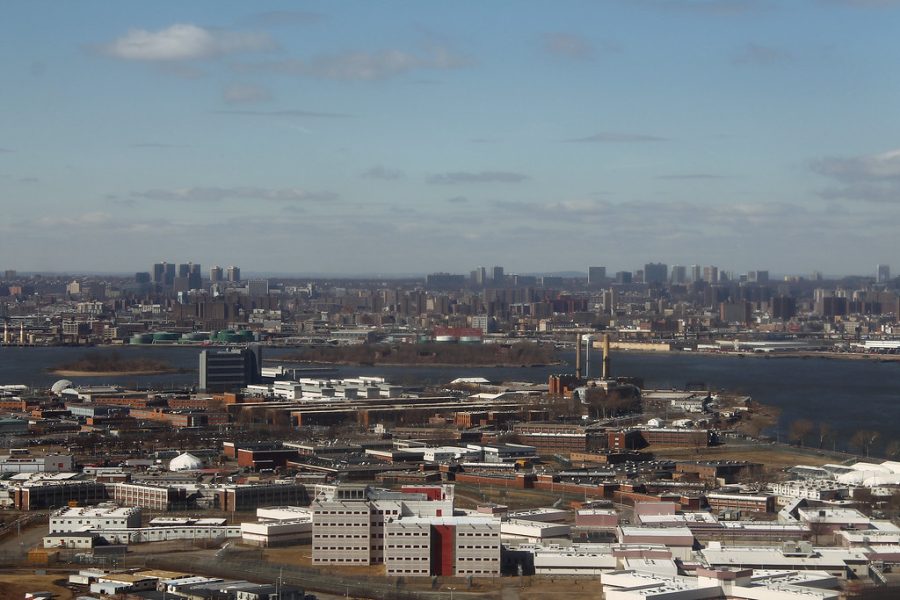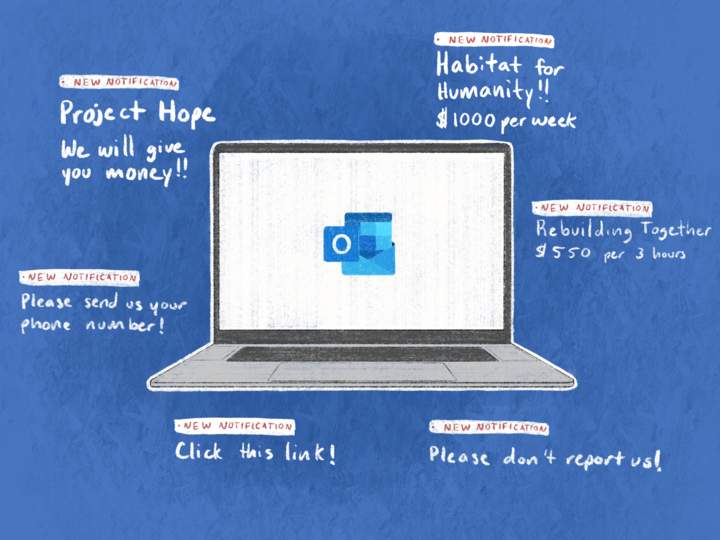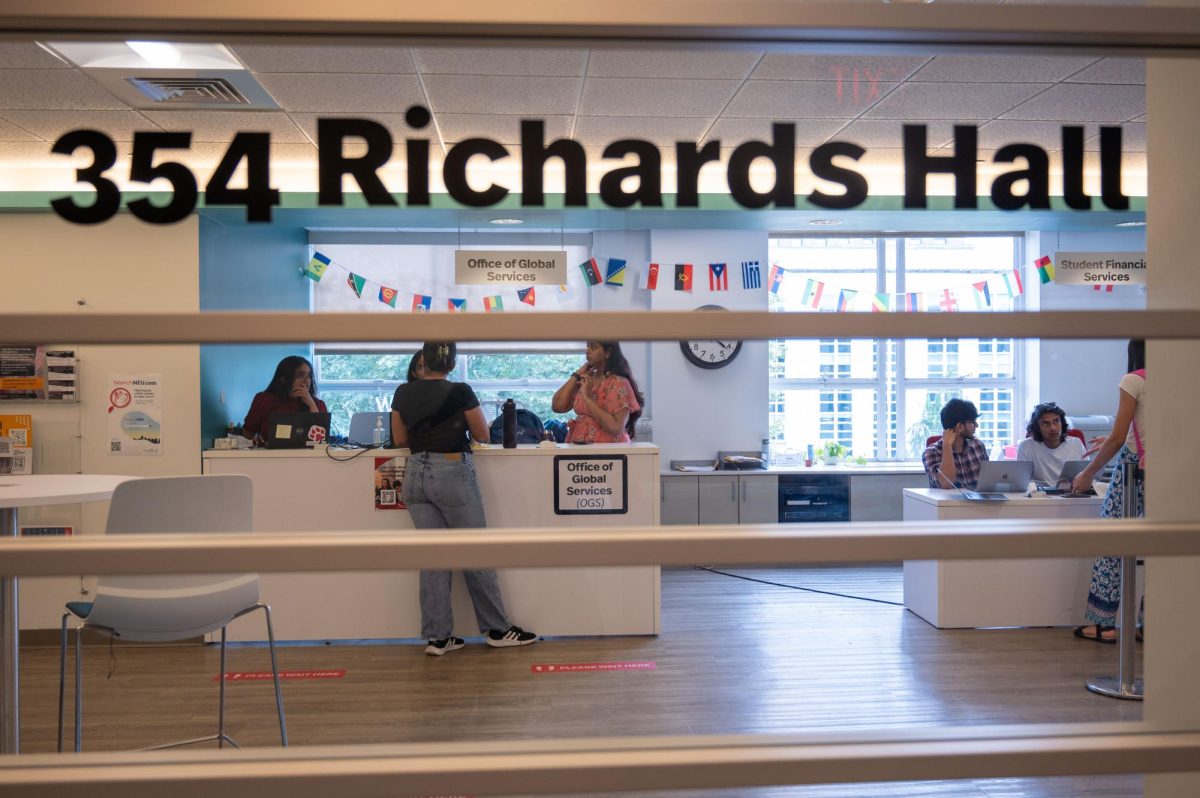Crisis at Riker’s Island points to larger issue of pre-trial detention
Inhumane conditions at Riker’s Island must be addressed and rectified.
January 23, 2022
Riker’s island, located in the East River between Queens and The Bronx, houses New York’s main jail complex and has ten jails with roughly 15,000 inmates. Recent photos from the New York Post show more than 20 people stuffed inside one cell, many forced to relieve themselves in plastic bags due to a lack of toilets. In 2021, 15 inmates died of either suicide, drug overdoses or COVID-19. One previously incarcerated individual spoke to New York Magazine and compared Rikers to a “war zone.” Another former inmate claimed that he lived in a cell with 30 other people and was not provided adequate food, water or toilets. Historically, jails have never been a place where people are supposed to be pampered and comfortable, but the overcrowding in Rikers is inhumane and needs to be addressed.
“People were relieving themselves into bags. They were sleeping on floors,” democratic candidate for city council Tiffany Cabán said in an interview with the Guardian. “These were the kinds of things you think about if they were happening in another country, you would believe without any hesitation that these were human rights violations. Nobody should ever be treated or kept in these conditions.”
One issue leading to these horrendous conditions mentioned above is the lack of employees. For one, many employees have been calling out sick, so much so that New York City filed a lawsuit against the correction officers’ union due to their alleged “campaign of mass absenteeism.” Mayor Bill de Blasio declared a state of emergency within correctional facilities, and created stricter rules regarding how employees can call out sick. In the workers’ defense, the job is immensely draining, especially because the jails are so overcrowded. Additionally, COVID-19 impacts jails and correctional facilities enormously. Incarcerated people are infected with COVID-19 at a rate five times higher than the national average due to overcrowding, an inability to social distance and unsanitary conditions. This in turn affects the employees, so many of the people who called out sick are very likely to have COVID-19. Rather than suing the employee’s union, New York should make changes to reduce overcrowding in jails and prisons and make it a safer environment for all.
Another great injustice is the fact that many people held at Rikers are simply awaiting trial and have not yet been convicted of any crime. If the American standard is “innocent until proven guilty,” then why are we locking up presumed innocent people in such inhumane and horrific conditions? The answer is the American bail system. More than 80% of detainees held in custody are detained pretrial, meaning that they have not yet been convicted and likely cannot make bail.
The purpose of bail is to ensure that people will return for all court appearances motivated by the money they give as bail; however, a judge can and often does deny violent offenders bail in order to protect the community at large. While this may be sound in theory, in reality, many defendants are unable to pay bail, which for a felony is an average of $10,000, and are locked away before they even get a trial date. Being incarcerated despite being legally assumed innocent can lead to economic distress as prisoners are unable to work, it puts their family under pressure, and can lead to reoffending because they are put at this financial and personal hardship. While bail bondsman and loans exist, they should not be necessary because, under the eighth amendment, “excessive bail shall not be required, nor excessive fines imposed” on defendants. While holding legally presumed innocent people behind bars because they are unable to post bail is morally wrong, it is also extremely expensive and the annual cost of pretrial detention is $13.6 billion dollars.
Some steps to alleviate the overcrowding at Rikers include lessening bail to limit the number of pre-trial detainees, transition to strategies of restorative justice or closing Rikers altogether, which is currently in action and is on track to be enacted by 2027. De Blasio released this plan in 2017, which focused on creating a system of smaller and safer jails. This is a great first step, but more immediate action needs to be taken in order to help the thousands of people living in these horrible conditions. Additionally, taking steps to reform the bail system will be instrumental in the long run as it is just as likely that smaller jails will become overcrowded and face the same issues as Rikers.
The issue of pre-trial detention and the conditions at Rikers are pertinent to Northeastern students not only because as human beings, it is imperative to empathize with other people who are suffering, but also because it impacts Boston. Northeastern’s Institute on Race and Justice published a report with the Middlesex county district attorney’s office on Bail and found that only 1.7% of defendants were unable to post bail, showing that most defendants are able to remain in the community while they await trial, which is good, but the report also shows disparities based on race, which is part of a larger issue. If more attention is given to the crisis inside Rikers, then jails across the country could also improve.
Renée Abbott is a first year journalism and criminal justice combined major. She can be reached at abbott.re@northeastern.edu.







